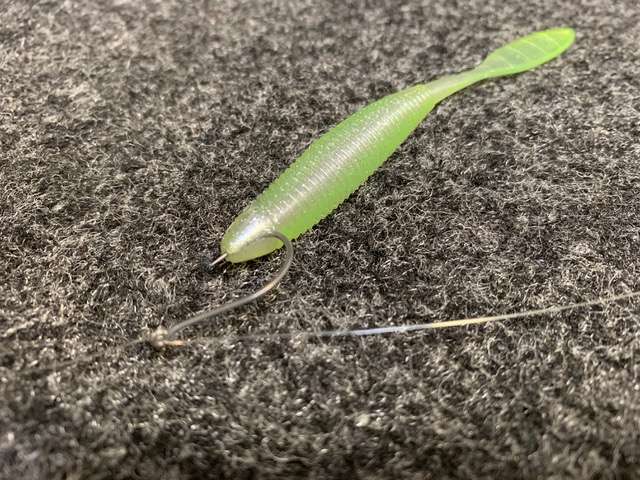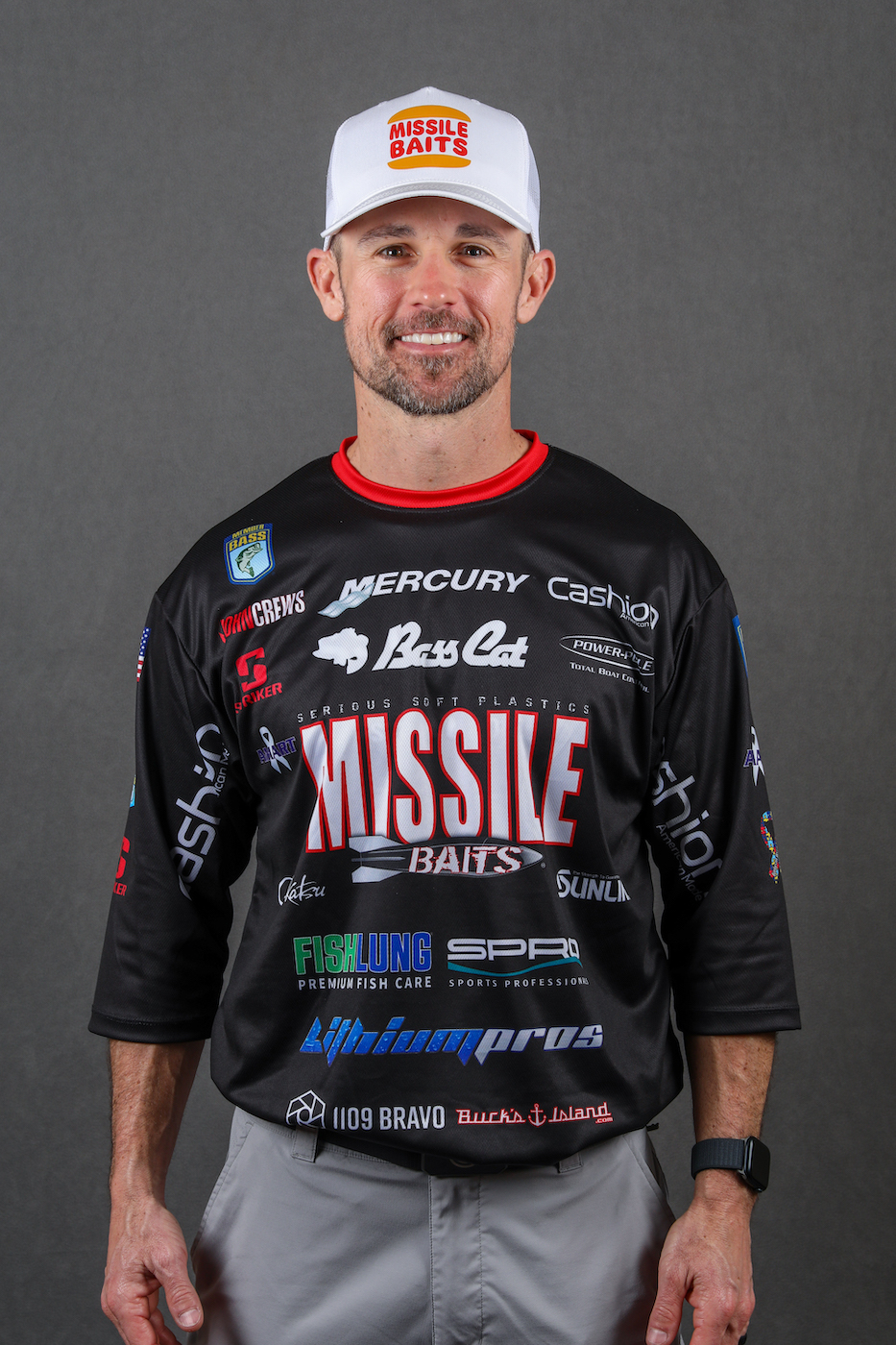
A lot of anglers don’t think about a drop-shot rig when the water’s cold. That’s too bad because late winter and early spring are good times to use this technique. The bass tend to be deep, and they’re often schooled up tight. That makes them a good target for this technique.
One of the things I’ve learned over the years, though, is that this is not the time for light weights. They’re good, and frequently produce more bass, when the water’s warm, but when it’s cold you need to get your bait down fast and be able to hold it in a fixed position to make them bite.
I typically go with a 1/4-ounce to 3/8-ounce weight. That does exactly what I want it to do but it’s still light enough to be handled on lighter tackle, and it lets me fish slowly and hold a fixed position.
Winter water tends to be clear, which makes a drop shot shine. Something in the 18- to 24-inch leader range is usually about right. Bass are keying on baitfish right now, and they are all the way around slower. The longer leader mimics those dying bait that are in the middle of the water column. The bass have time to decide whether or not to bite your lure, which can be good and bad.
Clear water also means anglers think they need super light line. That thinking is right. Lighter line will always get you more bites with a drop shot, but not because the fish see the line. The lighter line lets the bait swim and act more naturally which generates more bites than a bait that’s being restricted by heavier line.
I like to fish with 6- or 7-pound test Sunline Super FC Sniper Fluorocarbon as my leader in the clear water.

The key to not breaking off with that light line on a drop-shot rig is having a longer spinning rod with a soft tip. It’ll flex and give you some forgiveness.
Some rods with a parabolic bend will work since they bend throughout the middle of the rod and give a lot. However, I prefer a 7-foot or a 7-foot, 6-inch spinning rod with a little backbone but a soft tip. I call it a medium-fast action.
I actually designed a 7-foot, 4-inch counter balanced rod for Cashion Fishing Rods. I call it my Perfect Drop Shot Rod. If you use something else, though, be sure it has a soft tip and plenty of give or you’ll break your line sure as the devil.
The trick with the drop shot in the winter is to locate the fish and then drop your bait vertically down to them. As a practical matter this means that you’ll spend more time looking around and watching your electronics than you will fishing. Don’t waste time searching with a drop shot. Since those fish are usually grouped tight using your Lowrance units to find them is more productive.
In some cases, dropping a bait right in front of their nose is the best way to catch them. But at other times holding a bait 3-5 feet above them will get you more bites. For some reason bass at this time of the year like to move up to feed. They don’t always feed horizontal, and they rarely feed down.
One problem that you’ll likely encounter with this style of fishing is line twist, especially if your leader is fluorocarbon. There’s no way to totally eliminate twist, but you can lessen it to a great extent by using a tiny SPRO Power Swivel about 3 feet above your bait.
Another trick is to nose thread your bait. Just run the hook in the throat under the nose and make it come out the nose. That’ll make it sit straight on the hook’s point. It won’t twist and turn so much when sinking or retrieving. Check out the photo above to see what this looks like.
Bait colors are critical. Crayfish are dormant or hibernating. Crayfish colors tend to be less productive in the winter. Instead, go with something that resembles a baitfish. When the water’s real clear and the sun’s out I fish a Missile Baits Bomb Shot in fishalicious. I go with bombshell when it’s cloudy or if the water’s slightly stained.
It’s a mistake to neglect a drop shot just because the water’s cold. Don’t do it.

